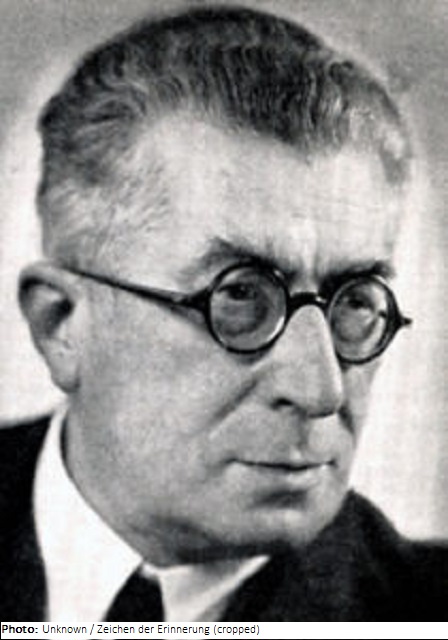
| Roles | Referee |
|---|---|
| Sex | Male |
| Full name | Georg Robert•Schmückle |
| Used name | Georg•Schmückle |
| Born | 19 August 1880 in Esslingen am Neckar, Baden-Württemberg (GER) |
| Died | 8 September 1948 (aged 68 years 20 days) in Stötten am Auerberg, Bayern (GER) |
| NOC |  Germany Germany |
Georg Schmückle grew up in Germany and Italy, where his father owned two hotels in San Remo with many VIPs as guests. When his father died in 1882, the family moved back to Germany for good. George joined the military, where he rose to the rank of captain and received various decorations. At the end of 1917, he was transferred to the war archive due to mental disorders. After World War I, he joined the radical right-wing Freikorps. In addition, Schmückle founded the Der schwäbische Bund (The Swabian League) in 1918, an extreme nationalist monthly magazine sharply opposing the Weimar Republic.
He eventually studied law in Tübingen and Berlin and, after earning his doctorate in Heidelberg, worked as a judge and public prosecutor in Stuttgart. A few years later, he left the judicial service probably at his request. Schmückle later stylized himself as a political victim. Subsequently, he worked as the manager of his parents-in-law’s factory.
Already in the early 1920s, Schmückle’s first works were published, stories, dramas, and poems mostly dealing with themes of German history interpreted in line with the Nazi ideology. With his greatest literary success, Engel Hiltensperger in 1930, he transported the entire spectrum of National Socialist ideology in the form of the historical novel. He joined the party in 1931 and the anti-Semitic “Kampfbund für deutsche Kultur” (Militant League for German Culture). Parallel to his work as a writer, Schmückle quickly made a career in the National Socialist cultural establishment. In 1933, he became state director of the “Reichsschrifttumskammer” (Reich Literature Chamber) and “Gaukulturwart” (District Culture Attendant). One year later, he was awarded the “Swabian Poetry Prize”. In 1939, he was appointed director of the Schiller National Museum in Marbach am Neckar.
In total, Schmückle wrote more than 20 books, which were very successful in National Socialist circles. After the war, he was interned in the Moosburg camp in Bavaria and his works were banned. Released in April 1947 for health reasons, he died in the following year. Georg Schmückle was the father of the German Army general Gerd Schmückle (1917-2013).
| Games | Sport (Discipline) / Event | NOC / Team | Phase | Unit | Role | As | |
|---|---|---|---|---|---|---|---|
| 1936 Summer Olympics | Art Competitions |  GER GER |
Georg Schmückle | ||||
| Literature, Dramatic Works, Open (Olympic) | Final Standings | Judge | |||||
| Literature, Epic Works, Open (Olympic) | Final Standings | Judge | |||||
| Literature, Lyric Works, Open (Olympic) | Final Standings | Judge |